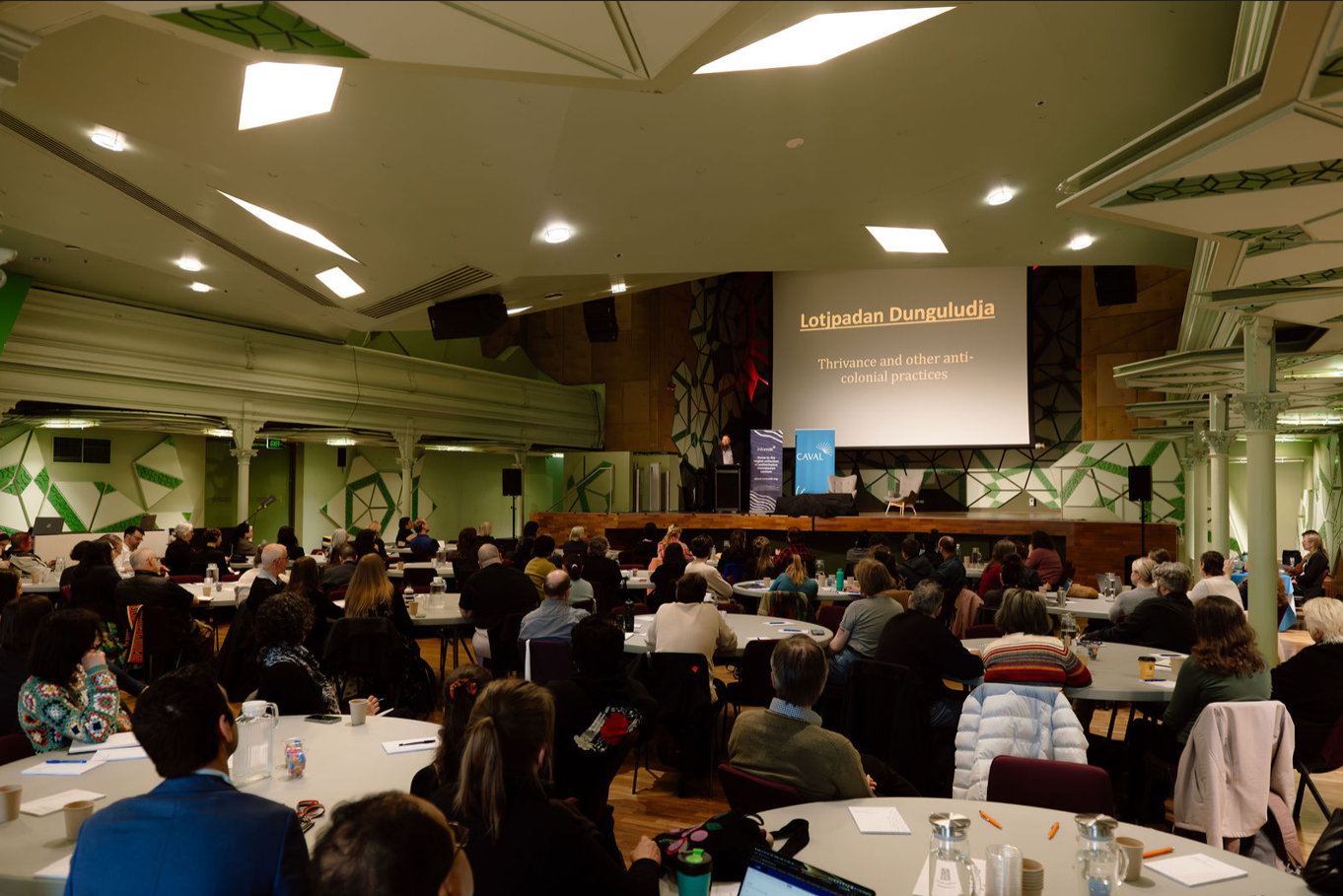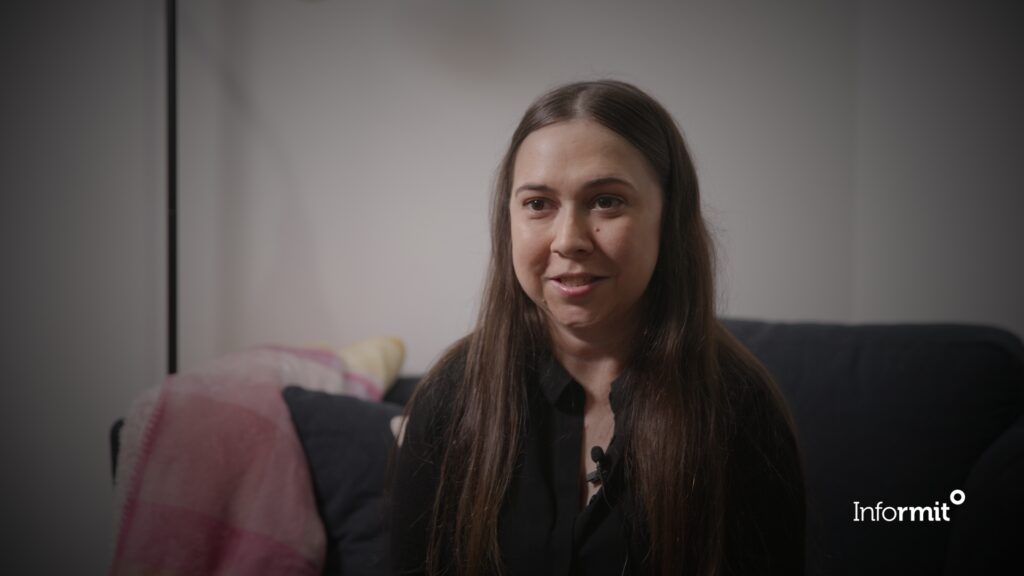Last week, our Head of Product Laki Sideris had the opportunity to be a part of a panel presentation alongside Prof Michael Dezuanni, Dr Hassan Khosravi and Toni Peggrem at the Curriculum Connect Symposium hosted by the State Library of Queensland. Panelists discussed and showcased pathways for creating inclusive and impactful learning experiences in an era of information overload and misinformation. We had a chat to Laki to discuss how AI is changing the information landscape and how Informit helps navigate the new uncertainties of misinformation.
I started my career as a secondary school teacher many years ago, and now, as a parent of a high school student, I remain closely connected to the education space. I’ve been with Informit for 30 years. Informit actually began as part of the RMIT University Library and evolved in parallel with the rise of electronic publishing and the internet.
Originally, Informit focused on building citation databases, essentially metadata services, it was a time when you needed to find something, you asked a librarian. Specialist, State and university libraries were deeply embedded in this knowledge-sharing system. School libraries, less so. Then the internet changed everything. All the content that had been sitting on shelves, referenced in catalogues, suddenly became directly accessible.
It stopped being “ask the librarian” and became “ask Google.” Discovery services made full-text content available, not just citations. That was transformative. AI now adds yet another layer, people aren’t necessarily searching for the original content anymore. They’re asking a model to synthesise or generate a specific answer. Now it’s “ask ChatGPT.”
What interests me is how we can make this vast library of original source content, currently available on Informit to university students and researchers, accessible to school students as well. These are future university students, researchers, hopefully active citizens. How do we support them in learning to distinguish original, authoritative sources from synthesised, unverified material floating around online or on social media?
At Informit, we aggregate original full-text publications, focusing on Australian and regional content, and we take pride in including a strong collection of Indigenous publications. With our platform, Informit Explore, we’re trying to make that curated library accessible in schools by layering tools that help contextualise the content. It’s not just about access—it’s about enabling students to build research skills: how to find original sources, how to recognise authority, and how to understand what bias looks like.
One of the biggest challenges with the current information landscape, especially on social media, is that people are constantly creating and consuming content. There’s just so much being generated all the time. There’s a kind of echo chamber effect, where you’re not necessarily encountering new knowledge but reproducing someone else’s synthesised opinion. AI accelerates this. Misinformation isn’t new, but AI intensifies its spread and impact.
We need to equip young people with critical thinking skills and a sense of curiosity, not just about “truth” in some abstract sense, but about where knowledge comes from. AI can produce impressively plausible-sounding answers, but without a foundational understanding of how knowledge is constructed, it’s easy to be misled.
I think LLMs are amazing—they surface sources or connections you never even considered. There’s a real richness in that. But at the same time, you’re shielded by the algorithm—you don’t actually know what’s in there. The stereotypes and biases in the training data come through. And because the sources aren’t always transparent, it becomes harder to interrogate what you’re being told.
I was playing with an AI music generation tool the other day, and my son, who understands music quite well, came in and immediately said, “Sounds like AI. That’s just a cliché.” He recognised the patterns. That’s what we want students to learn: how to recognise what’s original, what’s derivative, and what’s synthetic. If students spend time with original texts and learn to identify evidence-based opinion, navigating AI becomes a little safer. That skill can be taught, and it needs to be taught early.
Disinformation is especially dangerous. If we value democratic society and believe in individuals’ ability to make informed decisions, then we must strengthen both critical thinking and creativity. I see them as two sides of the same coin. Both require nurturing. Neither is completely natural. Creativity allows us to stay open to new perspectives and ideas. Both can be taught.
As AI tools become more widely used, teachers and librarians will face challenges, and opportunities. They’re already time-poor, and the demands of curriculum coverage are heavy. AI tools can help, but only if they’re thoughtfully integrated. Teaching isn’t just about passing information from point A to point B. It’s about understanding the nature and origin of knowledge itself. We need to preserve the teacher’s role as the critical agent in the room. You can’t just outsource that to a tool. Teachers bring interpretation, context, empathy—things AI may be able to simulate, but the human connection is vital, if we value what it means to be human.
An essential skill is the ability to read laterally: comparing different viewpoints, sources, and interpretations of a topic. That’s what real research is. Informit is built for that kind of exploration. What makes it valuable is that it gives you access to verifiable sources you can cite, interrogate, and compare.
What excites me about AI is its potential to enhance inquiry. It can help us frame more meaningful questions. But doing that relies on empathy, curiosity, and critical engagement. AI is impressive, but leaning on it without deeper critical understanding can also encourage complacency. We get wowed by a clever answer and stop there.
But if you push further, if you know how to interrogate and analyse, you can get something powerful out of it. That’s only possible if we’ve already taught students what critical thinking actually is.
Informit’s role in this space is to offer the diverse range of Australian publications—those that the university and research community consider essential—through a platform that all students can access, one that supports learning by providing context and guidance, and helps students navigate an environment increasingly shaped by misinformation.


